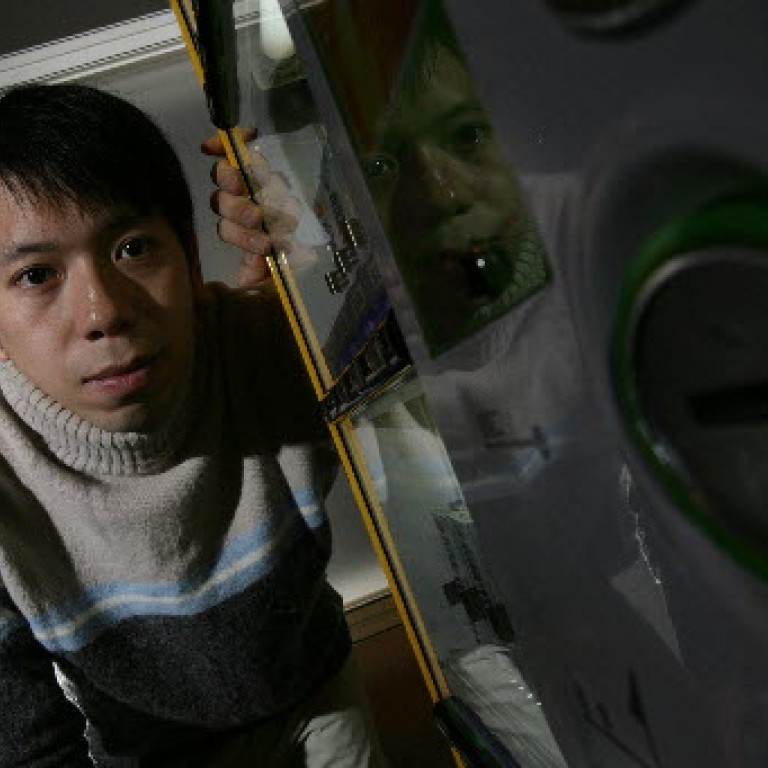
Hong Kong artist standing up for security guards
Security guards at government museums used to be on their feet all day. They might sleep on the job if chairs were provided, artist Luke Ching Chin-wai was told.
One day in 2007, Ching, then 37, decided not to stand for it any longer. He campaigned on the guards' behalf for chairs and, to put himself in their shoes, took up a security job and was posted to various places, including the Railway Museum in Tai Po, for about a month.
Afterwards, he took their cause to the management at the Museum of Art in Tsim Sha Tsui.
"The laws protect office workers so well that there are even regular inspections on whether the computer monitor is placed at the right level," Ching said. "But it's a totally different story for blue-collar workers."
During the discussion, he learned that guards were barred from sitting after some fell asleep at work. In the end, both sides arrived at a solution to provide bar chairs, which would allow guards to rest but not be so comfortable as to let them doze off.
Ching said a similar arrangement should be applicable to toilet cleaners, as such chairs would take up only slightly more space than a person standing upright.
But that was not all he wanted to change. The well-being of blue-collar workers would not improve much if "exploitative" subcontracting went on, he said.
"Cleaners can form co-operatives themselves and bid for cleaning contracts so that they can get higher wages and better working conditions," Ching said.
Workers' co-operatives were able to compete with established companies, he said, since the absence of management meant they could tender for jobs at lower prices.
The shortage of cleaners at many malls would also work to their advantage, he added.
But a unionist cautioned against oversimplifying the needs of a co-operative.
Such a set-up might require external financial help to get off the ground, as well as additional pay to hire a few administration staff to manage the roster, said Sze Shing-wee, an organiser of the independent Cleaning Workers Union.
An industry practice required cleaning contractors to pay a deposit equivalent to one month's service fee to each new customer, Sze noted. That should not be an "insurmountable" obstacle, however, if external help was available, he said.
